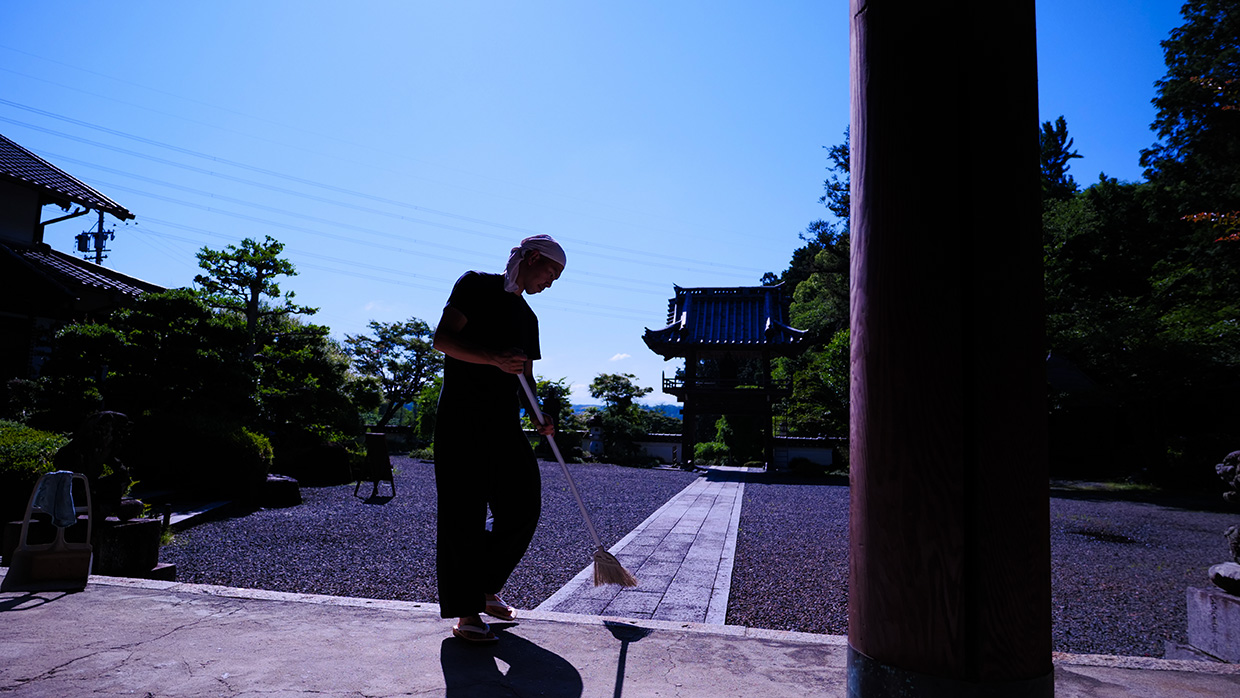K.O.

- Looking back on the Temple Stay, I would describe it as a "place of healthy self-denial."
It was like a dream. Without a doubt, I have changed.
I enrolled in the Busshin Buddhist Monastic Academy with the determination to practice Buddhism. Initially, I was taken aback by the strictness, such as the emphasis on etiquette, punctuality, and clear, loud responses, which reminded me of being in a sports team. However, as I immersed myself in doing each action carefully and with full effort, I was able to experience a sense of fulfillment that I had never felt in my daily life before. Now, a week has passed since completing the Temple Stay, and I feel a sense of loneliness and urgency as the awareness and sensations I gained during my stay begin to fade. I am also feeling a sense of confusion in the hustle and bustle of daily life and the overwhelming amount of information around me.
Looking back on the Temple Stay, I would describe it as a “place of healthy self-denial.” It was a place that made me realize how self-centered my thinking had been. In my work, I often play the role of mediator, prioritizing harmony over asserting myself, and I believed I was someone who was good at cooperating. However, during the Temple Stay, I realized that the actions I thought were for the sake of others were actually for my own benefit. For example, when I suggested a more efficient way to do an outdoor task, I was pointed out for proposing something without actually following the method that had been instructed. I was asked, “Do you realize that you have preferences—do you want to do it or not, do you like it or not?” This made me realize that my actions were driven by a strong desire to change the situation. This understanding—not acting based on likes and dislikes—is something that I can now apply to my daily life and work, and it has become a guiding principle for my actions moving forward.
Another important lesson I learned during the Temple Stay was the importance of “correct posture.” In temple life, proper posture during prayer, walking, and speaking is crucial, and I learned how closely posture and thinking are connected. Two key lessons stood out. First, “Lift your chest.” I was taught that raising the sternum (the area in the center of the chest, like the Ultra Man timer) upwards diagonally is important, not just during meditation but in daily life as well. For example, when I make mistakes or don’t want to be seen, I tend to shrink and hunch my shoulders, but this action is a way of making myself small, and it’s contrary to self-reliance. Maintaining a strong posture is essential to hold myself steady. Secondly, “Bend your head properly.” I was taught that in low bows or during prayer, to express gratitude and respect, it is important to lower the top of my head. When I tried it for the first time, it felt unnatural, and I realized that I had never truly bowed my head properly in my life.
In the past week, I have been consciously practicing this posture in my daily life, and I feel that I now have a greater sense of gratitude and respect for my colleagues and family. I also feel that I am now able to speak up and express what is necessary without unnecessarily appeasing others. I’ve noticed positive changes in those around me, and I am amazed by this transformation.
Additionally, I learned the importance of speaking out, maintaining healthy habits, and managing my time. The lectures at the Bokushin Buddhist Monastic Academy were a wonderful experience that allowed me to “experience a transformation in my perspective and way of thinking about the world.” The Temple Stay, on the other hand, was a fantastic experience from a different perspective, allowing me to “physically feel the changes I had made in my daily life.”
Once again, I would like to express my sincere gratitude to all the monks and staff who welcomed me and provided this wonderful experience.
